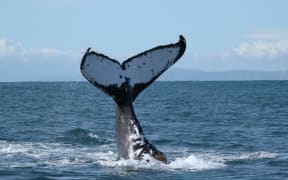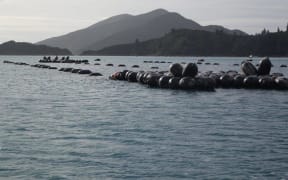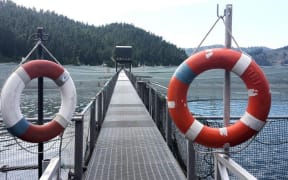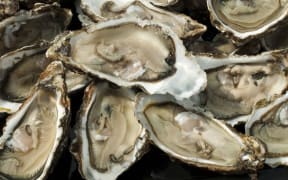Two sites off the New Zealand east coast have been earmarked as research areas for development of an open-ocean aquaculture industry.
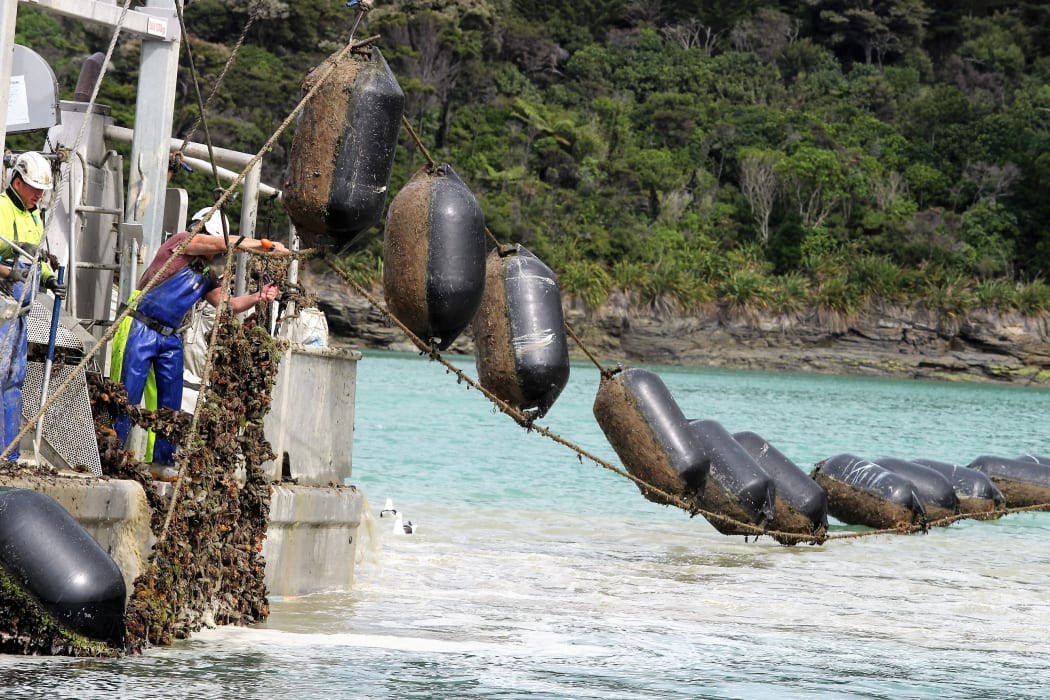
A mussel farm. The aquaculture industry is hoping to develop offshore marine farms. Photo: Supplied /Cawthron Institute
A site off the shore of Opotiki in Bay of Plenty and another site in Pegasus Bay in Canterbury are the areas where prototype technology will be trialled.
A group of international and New Zealand scientists met with academics and members of the aquaculture industry in Nelson last week.
Kevin Heasman of the Cawthron Institute, who is leading the project team, said it was a significant stage in helping to make a planned offshore industry viable.
More than 10,000 hectares of ocean in New Zealand is already consented for marine farming, but the technology has not yet been developed to cope with such a demanding environment.
Mr Heasman said last week's gathering of experts formed ideas that would move the project forward to a prototype development stage.
"We are starting to develop concepts and match them to the various animals [shellfish] and the environment. With all these ideas that are coming up at the moment by the group, we can now progress by looking at these things in a modelling sense."
After desktop modelling, wave tanks developed overseas would be used to test developments before they were trialled at sea, he said.
Offshore marine farms would be subjected to difficult conditions, and testing would include prototypes in a variety of different wave heights and sea states.
The government has committed project funding of $6 million over five years. Aquaculture firms Sanford and Whakatohea Mussels Opotiki are also providing resources to support the project.
Cawthron chief executive Charles Eason said some of the world's leading marine research figures were working alongside New Zealand researchers and industry experts.
German hydraulic and coastal engineer Dr Nils Goseberg said it was unusual to have such an international grouping together to focus on aquaculture solutions.
Mr Heasman said New Zealand was ahead of other countries in developing offshore aquaculture but obstacles remained, including the navigation hazards the farms might present to the maritime sector.
"Nobody would consent to having a farm in a navigation or high-traffic zone. All these farms would be well away from the main shipping routes."
The industry was factoring into its planning the heightened costs of operating in an offshore environment, Mr Heasman said.
"There's the initial cost of getting the equipment out there, and then the maintenance and servicing. Plus things like marketing and supply - how to make sure the factory is constantly supplied when the weather turns bad and the boats can't get out to the farms to get the product."
Mr Heasman said climate change and its impacts on the New Zealand coast was also a factor in their thinking.
"We have to be aware of it, and consider it, but at the moment we think we can progress."

